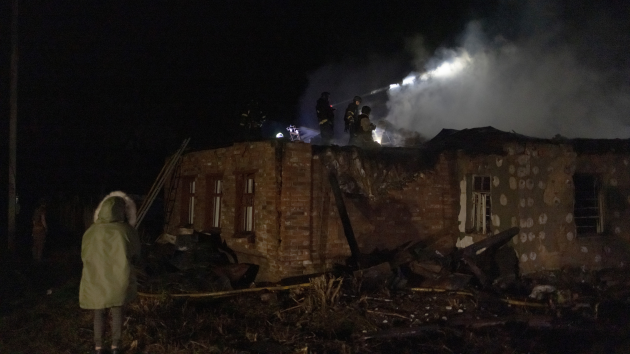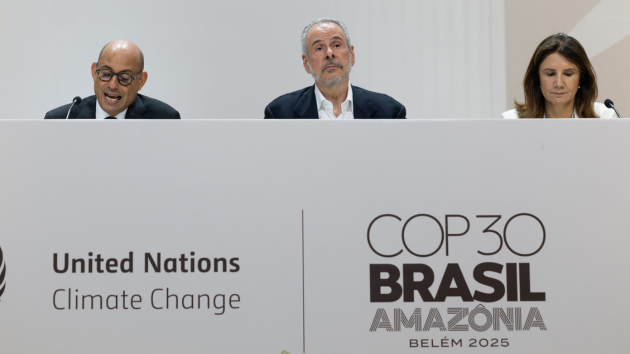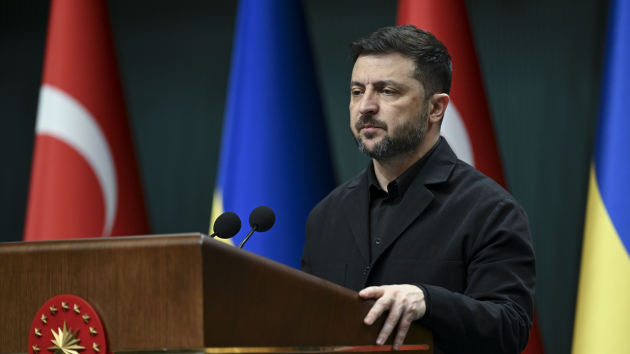‘Kick Russia out of the UN’: Group prepares legal challenge as Russia gets set to take UN Security Council presidency
Written by ABC Audio ALL RIGHTS RESERVED on March 31, 2023

(LONDON) — The Russian Federation will on April 1 take over the presidency of the U.N. Security Council, a shift in power that may seem extraordinary amid the war in Ukraine.
Despite the international condemnation and the allegations of President Vladimir Putin’s forces committing crimes against humanity in Ukraine, it will be Russia’s turn next month to step into the leadership position, which changes on a monthly basis.
Russia holds the power of veto on Security Council resolutions, something that Ukrainian President Volodymyr Zelenskyy criticized last year, when he said the bloc should act decisively or “dissolve itself” after the atrocities committed in Bucha came to light.
“We are dealing with a state that is turning the veto of the United Nations Security Council into the right to die,” he said.
A year on from Zelenskyy’s address, Russia’s membership remains entrenched, as the country sits as a permanent member along with the U.S., France, the U.K. and China. But as Russia is set to take the presidency, one group of lawyers and diplomats is trying to block the move — and kick Russia out of the U.N. entirely.
“If we let Russia’s aggression stand, if Russia gains what it is seeking to gain out of its aggression against Ukraine, really the entire framework that we set up in 1945 is at risk,” Thomas Grant, professor at the Lauterpacht Centre for International Law and a member of Civic Hub, the organization seeking to eject Russia, told ABC News. “We think that the grounds for doing this are extremely strong.”
The organization started as a group of academics and lawyers, but now boasts sitting Ukrainian lawmakers and diplomats in its ranks. They concede that the idea Russia will be booted out of the U.N. entirely is a long shot, but they said they hope at the least to stop Russia from securing the presidency in April. They also want to call Russia’s membership on the U.N. Security Council into question.
The group have yet to submit their formal legal challenge, but say they are adamant that the invasion of Ukraine has posed a major challenge to the composition of the U.N.
“There is a famous saying among the members of the Security Council that the Security Council is the master of its own procedures,” Volodymyr Yelchenko, the former Ukrainian ambassador to U.S. and Russia and member of Civic Hub, told ABC News. “They’re very vague.”
For their prospective legal case, he said, their efforts to lobby in Washington, Paris and London, are more important to their case than going to the Security Council directly, members said.
The political argument has perhaps been strengthened by the arrest warrant issued by the International Criminal Court for Putin. There’s also a U.N. resolution calling for Russia’s immediate withdrawal. Those are indications the international community may be responsive to the Civic Hub’s proposal, they said.
“It’s that sort of aggression that is simply not tolerable. If what you want is basic predictability [and security] among countries in their relations … then it’s vital that Russia be identified as an aggressor that ought not be sitting in the principal security organ of the U.N.,” Grant said. “That’s the political case to be made.”
Civic Hub’s legal case, which they hope will compel the U.N. to act, however, is completely different.
Rather than formally requesting U.N. membership in 1991 after the dissolution of the Soviet Union, Russia merely inherited their member status, they said.
“Russia has never joined the U.N. in the proper way,” Professor Iouri Loutsenko, a former senior staffer at the World Bank and the one of the co-founders of Civic Hub, told ABC News. “And this is a legal factor is undisputable.”
According to Loutsenko, the group has not received “straight answers” from the U.N. as they have lobbied for their proposal. But, if they were successful, Russia would be denied a voice on the world’s highest diplomatic stage.
“Russia [would] still have a flag in front of New York headquarters,” Grant said. “Its diplomats would still have key cards or whatever they used to get into the building, but they wouldn’t sit in the seats. They would not cast votes, they would not speak from the seat, and they would not be using the council as a broadcast platform for their messaging. So that would be the result.”
By exploiting that legal position, the group hope to isolate Russia even further from the international community, helping end the war in Ukraine and leading to change from within.
Copyright © 2023, ABC Audio. All rights reserved.
 KVSP
KVSP 




